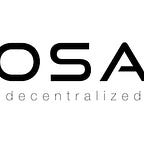It’s a fact, we’re fat and getting fatter. Today, 14% of the world’s population is obese. This means one out of eight people on earth has so much unhealthy body fat they risk contracting diabetes, suffering a stroke, and having a heart attack. As a result, the obese die as many as ten years earlier than the general population. Even more disturbing are new figures from the World Health Organization (WHO) which predicts that by 2045, 22% of everyone on the planet — more than 2 billion people — will be grossly overweight.
Medical experts and nutritionists agree on the fundamental reasons so many of us are obese. The biggest factor: our increasingly sedentary, internet-connected lives. The growing amount of time we’re surfing the web and tied to computer screens, big and small, in both our jobs and our homes, means less time engaged in exercise or any other physical activity. Another problem is our diet. Besides eating more fast foods high in calories and low in nutrition, when we try to shop for healthier foods we’re often exasperated because we don’t have the patience or time to compare labels for the healthiest ingredients. Finally, when we find the courage to start a diet, we mistakenly do it alone and often fail because we’re too embarrassed or self-conscious to seek the support, counselling or medical interventions that may help us survive the first difficult weeks of a diet to eventually break the unhealthy cycle of food addiction.
Driven by a mission to make the retail industry more transparent and consumer-focused, OSA DC is confident they have a solution to the crisis of obesity. Their plan — use the company’s existing AI-enhanced blockchain technology, a platform created to streamline grocery store supply chains, to also trim the overweight bodies of the obese.
Using OSA’s blockchain, every bit of product data generated along a retailer’s supply chain is tracked by every other partner on the chain, from the original farm or manufacturer of a product, to a regional packaging center, to the retailer, and eventually to the hands of the consumer. Because of the transparent, incorruptible nature of the distributed ledger in a blockchain, whenever an outdated product, shipping error, or any other mistake is discovered, either by a partner or an AI algorithm trained in error detection, the problem is immediately resolved and the retailer becomes incrementally more profitable as a result.
How will the OSA blockchain be used to fight obesity? The answer is the Digital Diet Assistant (DDA) a smartphone app the company is developing to help consumers make smarter, healthier choices when they buy groceries — saving shoppers the time they would need to do it on their own. “Imagine walking into your favorite grocery store and a sales associate you’ve never met before immediately walks up to you and tells you they know all the nutritional and dietary needs of your family. They show you exactly where you can purchase the healthiest products in your favorite food groups; products that are lowest in fat, sugars, and carbs. If you want to compare the nutritional content in two competing brands in the same product category, your hypothetical sales associate will do this for you instantly and give you a recommendation within seconds.
Because a huge amount of data about each product will already be available in a supermarket’s blockchain — a platform hosted and maintained by OSA DC — a unique set of AI algorithms embedded in each chain will be trained to answer questions from shoppers about a product’s history, comparative pricing, nutrition and fat and sodium content, etc.
When shoppers authorize the stores they patronize to contribute data about their purchases to the store’s blockchain ledger, that’s when the real value begins. By storing the history, ingredients, and details of their favorite food products along with a consumer’s buying history, AI algorithms in the platform will analyze both data streams, and instantly give shoppers recommendations through their smart phone whenever they shop for groceries.
“To successfully maintain a diet, we must all maintain self-control and discipline at the grocery store,” said Kathy McLeman, a trained naturopathic nutritionist in Mayfield, England. “When I shop for groceries I always see overweight people put items in their shopping cart that are not healthy for them or their families. I wish I could give them advice and encourage them to put some items back on the shelf and make better choices. I can’t but the OSA Digital Diet Assistant can. It gives shoppers the self-control we all need when we buy groceries.”
Just as the transparent, open and decentralized ledger of a blockchain will root out and eliminate problems with bloated, unhealthy retail business practices, the OSA DC team is confident the DDA will have the same effect on unhealthy, overweight people.
